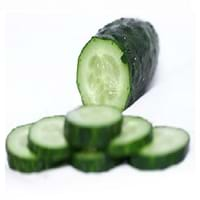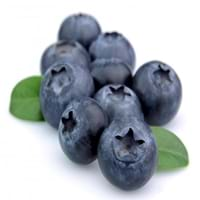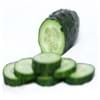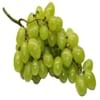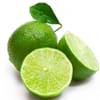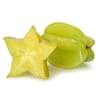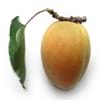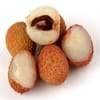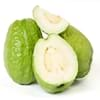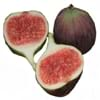Health Benefits
Arthritis treatment, Cancer prevention, Eczema treatment, Increases metabolic rate, Kidney stone treatment, Prevents constipation, Removes toxic metals, Treatment of alzheimer's disease
Cancer prevention, Heart care, Increases metabolic rate, Strengthening of bones, Treatment of skin Diseases
General Benefits
Anti oxidant properties, Anti-inflammatory properties, Controls blood pressure, Digestive aid, Strengthens bones, Treatment of sore eyes
Anti oxidant properties, Boosts immune system, Digestive aid, Eye care, Improves blood circulation, Sore throat treatment
Skin Benefits
Heals sunburn, Hydrates skin, Skin rejuvenation, Skin revitalization, Treatment of dark spots, Treatment of skin diseases
Anti-aging benefits, Reduces wrinkles, Skin rejuvenation, Treatment of skin diseases
Hair Benefits
Promotes longer and healthier hair, Protects hair, Regulates hair growth, Shiny hair
Protects hair
Allergy Symptoms
Breathing difficulty, Decrease in blood pressure, Diarrhea, Itching, Red rash, Runny nose, Sneezing, Vomiting, Watery eyes
Abdominal pains, Coughing, Diarrhea, Itching, Runny nose, Sneezing, Swelling of mouth, tongue or lips, Wheezing
Side Effects
Stressed heart, Irritation, Swelling, Swelling around mouth, Throat swelling, Tongue swelling, Strained blood vessels
Allergic reaction
Lactating Women
Not Available
Yes
Best Time to Eat
Along with meal, As a snack in the late afternoon, Eat the fresh ones, avoid mixing with any other foods, don't eat after meal., Strictly avoid empty stomach
Best if taken as a breakfast (or empty stomach), As a snack in the late afternoon, Don't consume at night and before bed, Eat the fresh ones, avoid mixing with any other foods, don't eat after meal., Morning time (before lunch)
Vitamin A (Retinol)
Not Available
Vitamin B5 (Pantothenic Acid)
Not Available
Vitamin B6 (Pyridoxin)
Not Available
Vitamin B9 (Folic acid)
Not Available
Vitamin C (Ascorbic Acid)
Vitamin E (Tocopherole)
Not Available
Vitamin K (Phyllochinone)
Not Available
Lutein+Zeaxanthin
Not Available
Phytosterol
Not Available
Calories in Fresh Fruit with Peel
Calories in Fresh Fruit without Peel
Not Available
Calories in Frozen Form
Not Available
Not Available
Calories in Dried Form
Not Available
Not Available
Calories in Canned Form
Not Available
Not Available
Calories in Juice
Not Available
Calories in Jam
Not Available
Calories in Pie
Not Available
Type
Fruit vegetable, Melon
Berry
Season
Spring, Summer
Summer
Varieties
Armenian, English, Garden, Kirby, Lemon and Persian
Dwarf Huckleberry, Cascade Huckleberry, Mountain huckleberry and Blackwinter Huckleberry
Color
Dark green, Green
Blue, Purple, Purplish black
Inside Color
White
Purple
Taste
Juicy, Watery
Sweet
Origin
India
North America
Grows on
Vines
Not Available
Soil Type
Loam
Loamy, Sandy, Well-drained
Climatic Conditions
Warm
Humid, Warm
Facts about
- Outer waxy coating of cucumber can erase the pen writing.
- Pressing cucumber on roof of mouth for 30 sec will eliminate bad breath.
- It is made up of 96% water.
- English cucumber can grow longer than 2 feet.
- "I'm your huckleberry" is a way of saying that one is just the right person for a given job.
- The phrase "a huckleberry over my persimmon" was used to mean "a bit beyond my abilities".
Top Producer
China
United States of America
Other Countries
Egypt, Indonesia, Iran, Japan, Russia, Spain, Turkey, Ukraine, United States of America
Canada
Top Importer
France
Canada
Botanical Name
Cucumis sativus
Gaylussacia brachycera
Synonym
Not Available
Not Available
Subkingdom
Tracheobionta
Tracheobionta
Division
Magnoliophyta
Magnoliophyta
Class
Magnoliopsida
Magnoliopsida
Subclass
Dillenhidae
Asteridae
Order
Cucurbitales
Ericales
Family
Cucurbitaceae
Ericaceae
Genus
Cucumis
Gaylussacia
Species
C. sativus
G. brachycera
Generic Group
Not Available
Heath
Difference Between Cucumber and Huckleberry
We might think that Cucumber and Huckleberry are similar with respect to nutritional value and health benefits. But the nutrient content of both fruits is different. Cucumber and Huckleberry Facts such as their taste, shape, color, and size are also distinct. The difference between Cucumber and Huckleberry is explained here.
The amount of calories in 100 gm of fresh Cucumber and Huckleberry with peel is 15.00 kcal and 37.00 kcal and the amount of calories without peel is 12.00 kcal and Not Available respectively. Thus, Cucumber and Huckleberry belong to Low Calorie Fruits and Low Calorie Fruits category.These fruits might or might not differ with respect to their scientific classification. The order of Cucumber and Huckleberry is Cucurbitales and Ericales respectively. Cucumber belongs to Cucurbitaceae family and Huckleberry belongs to Ericaceae family. Cucumber belongs to Cucumis genus of C. sativus species and Huckleberry belongs to Gaylussacia genus of G. brachycera species. Beings plants, both fruits belong to Plantae Kingdom.
